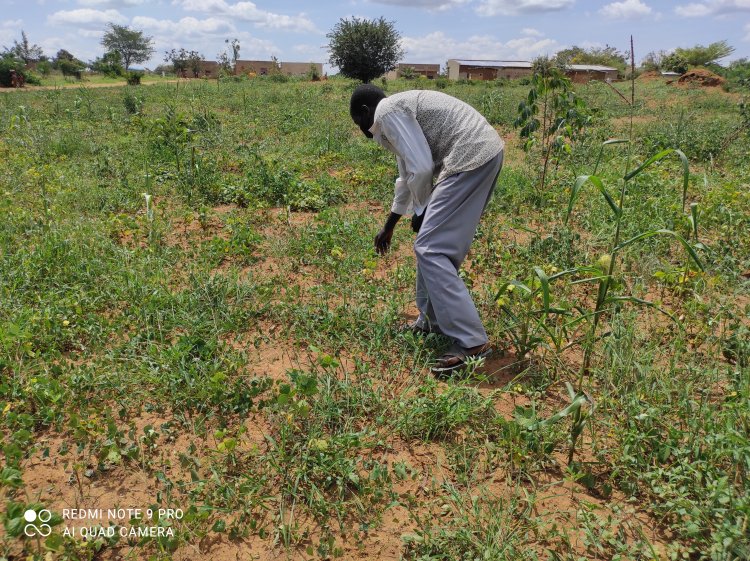Climate change traumatizes locals and hinders development

Eastern Province is not normally impossible area to live in: the region is home to many places that are among the best in the country in terms of production and stable weather. Yet certain areas of the province, such as Ndego Sector of Kayonza Disctrict, are especially vulnerable to climate change, which has traumatized many residents, made it hard for them to adapt, and hindered their development because they can’t plan for the long-term.
According to Meteo Rwanda, in 2021 citizens of Kayonza requested to consider the microclimatic zones while generating weather forecasts.
“Unlike other parts of the country that are experiencing rainfall from September to December 2021 season, citizens of Ndego are yet to witness the rainfall and it seems like they are in dry season,” stated Meteo Rwanda.
“Once you reach Ndego Sector, what you could see is a clear sky and there is no sign that it rained some few days ago. Big plots of land remained uncultivated and the beans planted which are yet to grow have started dying up. Cattle were hardly grazing and you could see no water. However, moving on, in Kabare sector, which is not very far in distance to Ndego Sector, you find some good crops and green villages,” the organization added.
How it happened
Things began getting difficult around 2015, when the drought surrounded this part of the country. At this time, some residents of Ndego and Rwinkwavu sectors opted to migrate to Tanzania or Uganda. Others migrated internally, becoming seasonal nomadic. Residents nicknamed this sort of hunger ‘Nzaramba’ which means ‘persistent’

“Some migrated to Umutara, few of us who stayed here for this long is because we kept believing that the irrigation will come soon, otherwise it’s hard to live on,” said Venuste Nzabarushimana, a resident of Ndego Sector who has experienced the harsh drought of all seasons.
Same happened before in Bugesera
“Bugesera District has been characterized by deteriorating trends with an exceptional variability long sunny season and rainfall constancy and strength, which resulted into serious floods in 1997-1998 and a prolonged dry season in 1999- 2000.”
Research by UN Environment on the Impact of climate change on the hunger crisis in Rwanda, published in International Journal of Scientific and Research Publications in February 2021, states that a long period of dry season has caused crops failures and severe food deficits, threatening the most vulnerable farmers with malnutrition and famine.
“Bugesera District experienced its most severe and longest dry seasons in 1999, 2000 and in 2007. Most people in Bugesera rely heavily on agriculture. So long dry spells have great impacts on their source of income and wellbeing,” the report stated.
The report also says that the climate variability or climate change is now a well-accepted reality and there is emerging evidence that climate variability poses a threat for development in Rwanda.
Efforts to normalize
Some local leaders say that they have put in place good plans to fight back against climate change in different parts of the eastern part of Rwanda.

The Executive Secretary of Ndego Sector, Claude Bizimana, says his office is working with partners to bring to their residents irrigation projects that they have been waiting on for decades.
Claude Murekezi of Rwinkwavu Sector says that they are working with partners to plant trees on Rwinkwavu’s naked hills, especially consumable trees that can be mixed with crops, and can produce money for the farmers as well.
One researcher’s suggestion to the government is to plan a long term agricultural project that includes tree planting and irrigation; this will help the climate change here in Rwanda.
The government of Rwanda through the Ministry of Environment has introduced a new environment and climate change policy to better prepare the country for new opportunities and challenges related to the management of the natural environment and the climate crisis.
This story is supported by Social Impact Reporting Initiative (SIRI), but the content is the sole responsibility of the journalist and the media publisher.


 Francine Andrew
Francine Andrew 




























